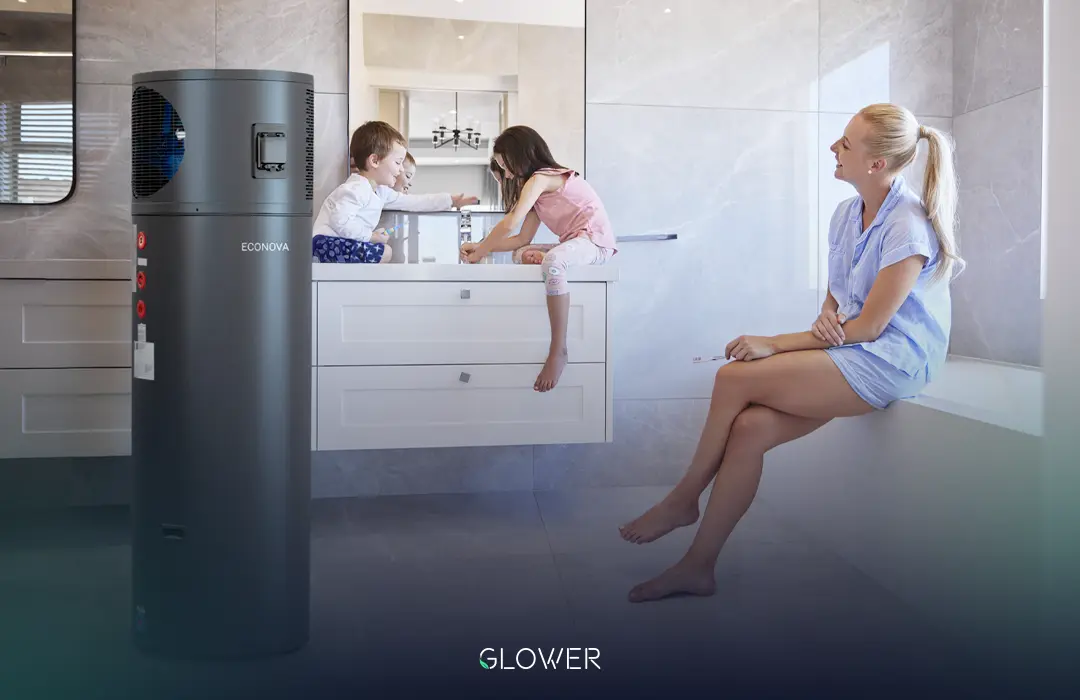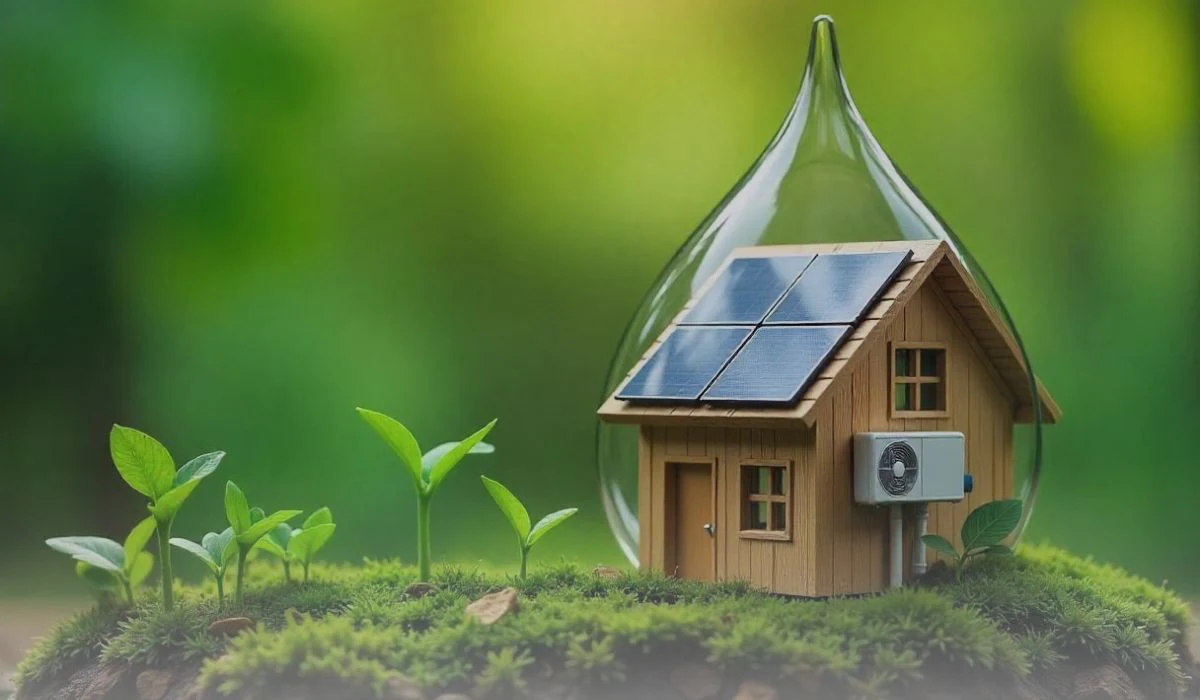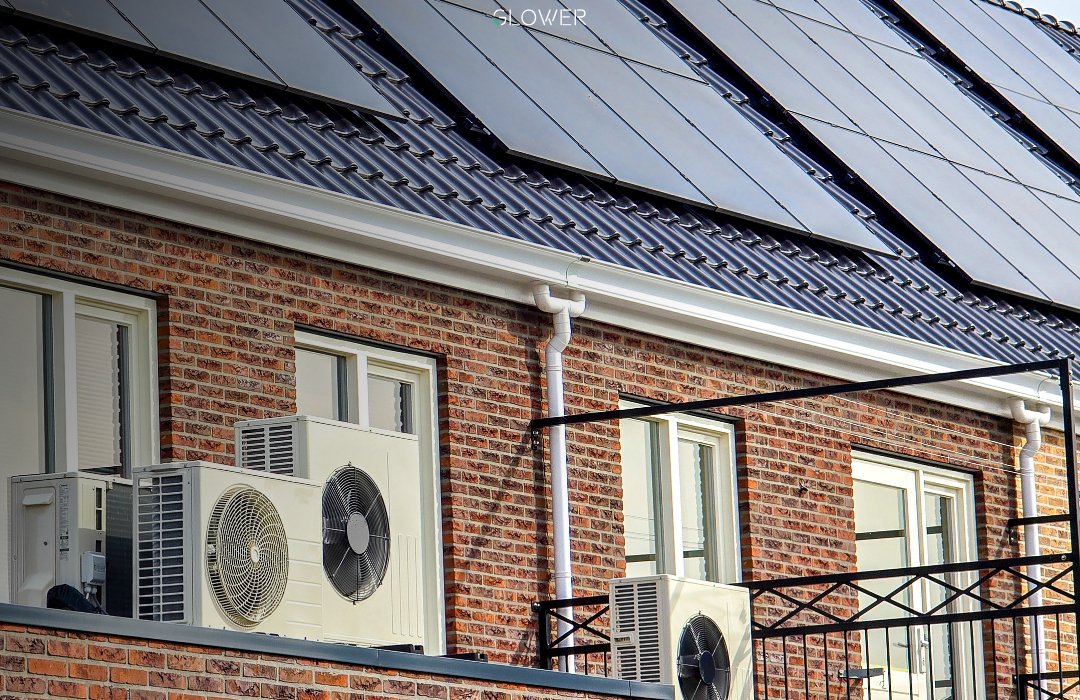Heat pump hot water systems are energy-efficient alternatives to traditional water heaters. Instead of generating heat directly, these systems extract warmth from the ambient air and transfer it to the water, making them much more energy-efficient than conventional electric or gas heaters. For this reason, heat pumps are installed outdoors, where they have access to a constant supply of ambient air.
Installing a heat pump indoors can restrict airflow, causing:
Reduced Efficiency: Without sufficient ventilation, your heat pump won’t perform optimally, consuming more energy and possibly costing you more in utility bills.
System Strain: Poor ventilation causes the system to work harder to extract warmth, leading to potential wear and tear and a shorter lifespan.

Potential for Increased Noise Indoors
Heat pumps are generally quieter than traditional water heaters, but they still produce a noticeable hum and occasional fan noise. Indoors, this sound can become an unwelcome background noise in your daily life, especially if placed in or near frequently used areas like the kitchen or laundry room.
Disruptive Sound: A heat pump’s operating sounds may be faint outdoors, but indoors, they can be disruptive, particularly at night or during quiet moments.
Location Limitations: If you do try an indoor setup, you would likely need to place it in a closed-off room or utility area, which could restrict ventilation even further.
Space Requirements Indoors Can Be Hard to Meet
Heat pumps are not particularly compact; they require a good amount of space around the unit for proper airflow and maintenance access. Indoor installations often struggle to meet these requirements due to limited space, leading to:
Insufficient Clearance: For safety and maintenance, most heat pumps require at least one foot of clearance on all sides. Indoor spaces can make this challenging to achieve, which can hamper performance and even void warranties.
Maintenance Access: With reduced clearance, routine maintenance or repairs can become difficult, leading to additional labor costs or even replacement if parts become inaccessible.
Moisture and Condensation Buildup
Indoor installations can also lead to moisture buildup, especially in enclosed areas with limited ventilation. Condensation is a natural byproduct of heat pumps, and indoors, this can create:
Moisture-Related Damage: Over time, moisture buildup can lead to mold, mildew, or water damage to nearby walls and furniture.
Humidity Issues: Moisture and condensation can raise the humidity level in the room, creating an uncomfortable indoor environment and increasing the risk of damage to electrical components within the heat pump.
While it’s technically possible to install a heat pump water heater indoors, the drawbacks often outweigh the benefits. From limited ventilation to increased noise and moisture issues, indoor setups can create challenges that lead to higher costs and reduced efficiency. By installing your heat pump outdoors, you’re giving it the best chance to operate efficiently, saving on energy and maintenance costs in the long run.
Thinking about a heat pump water heater? Contact us to explore the best outdoor options to maximize efficiency, comfort, and savings for your home!





